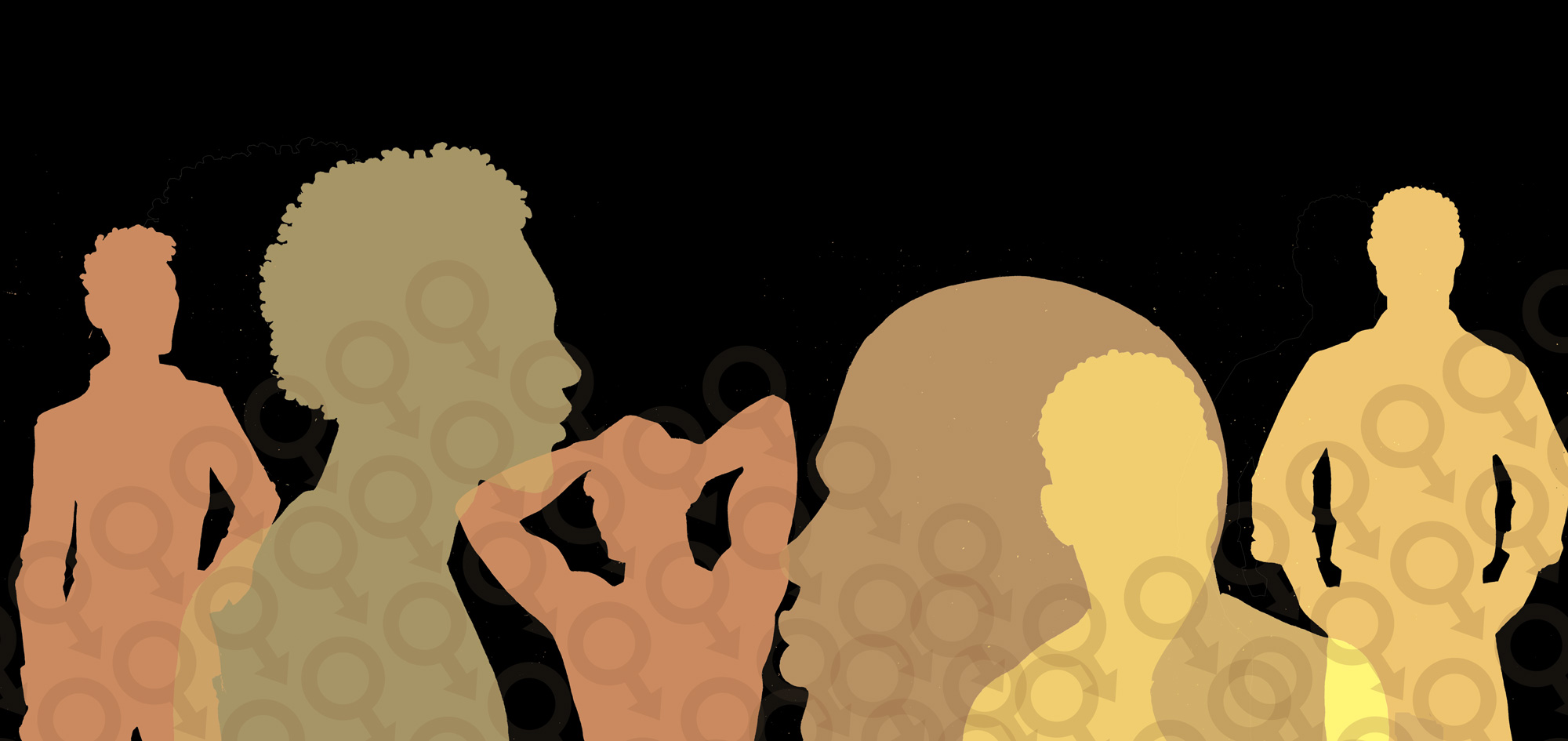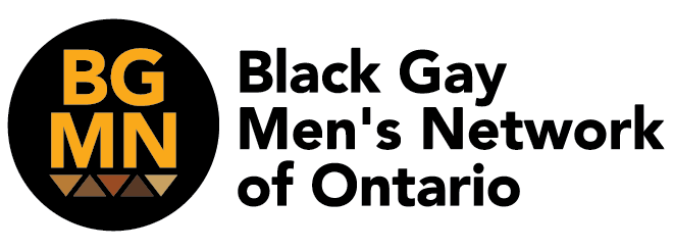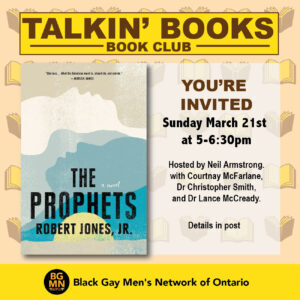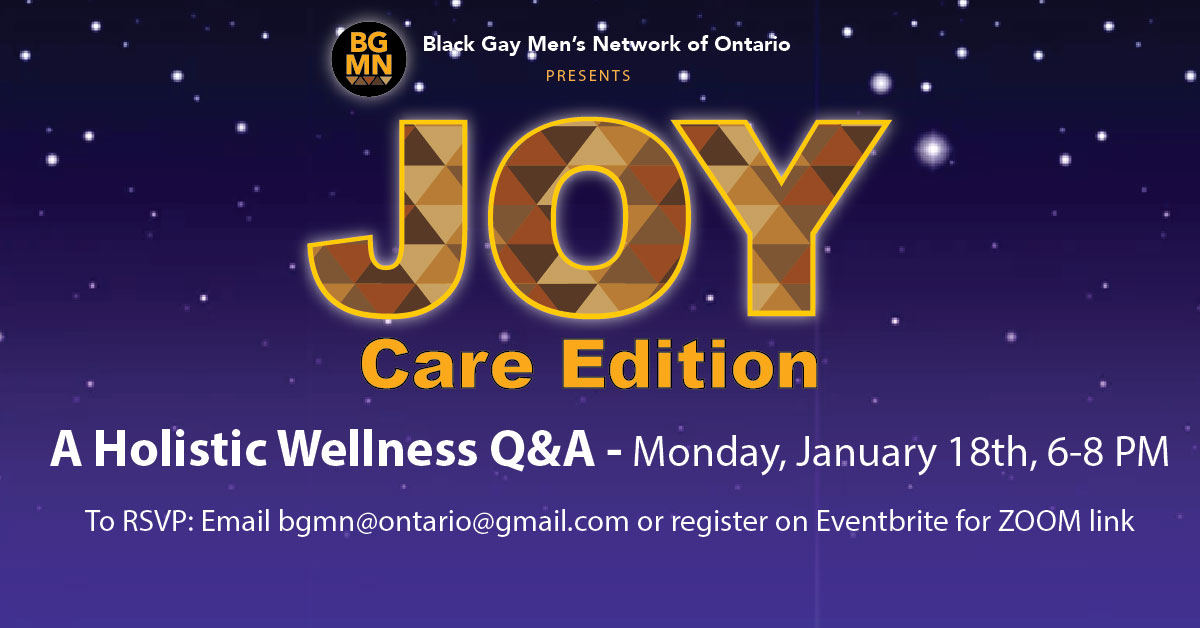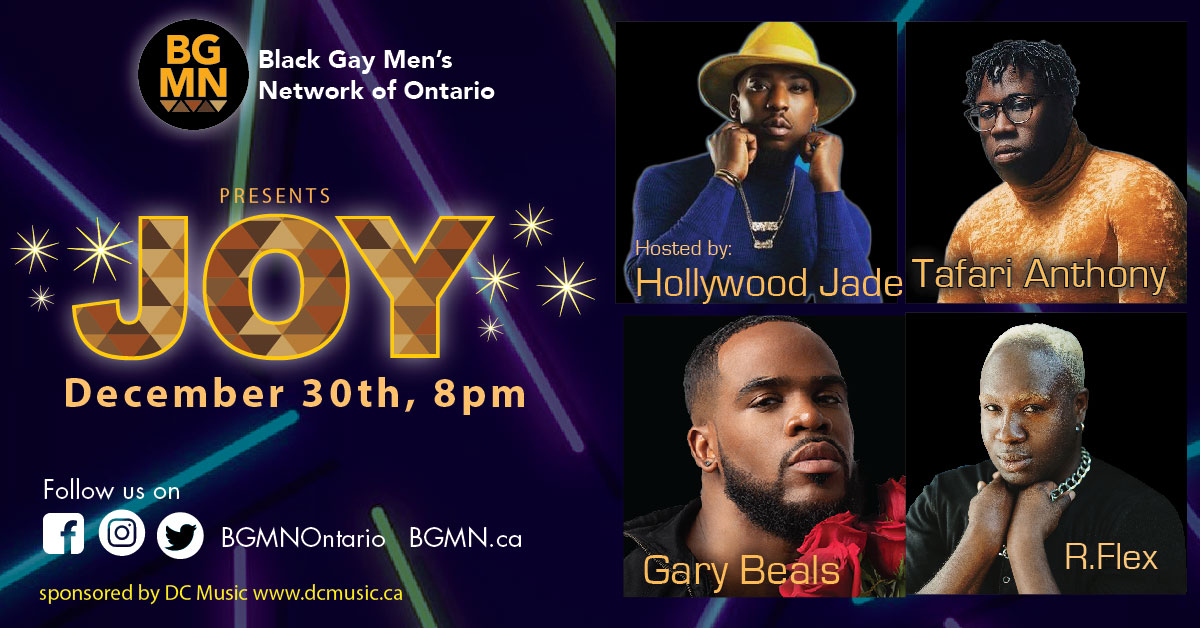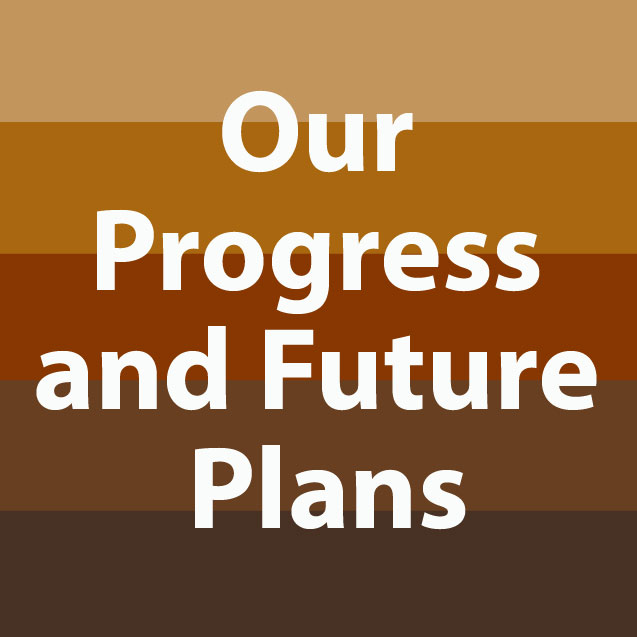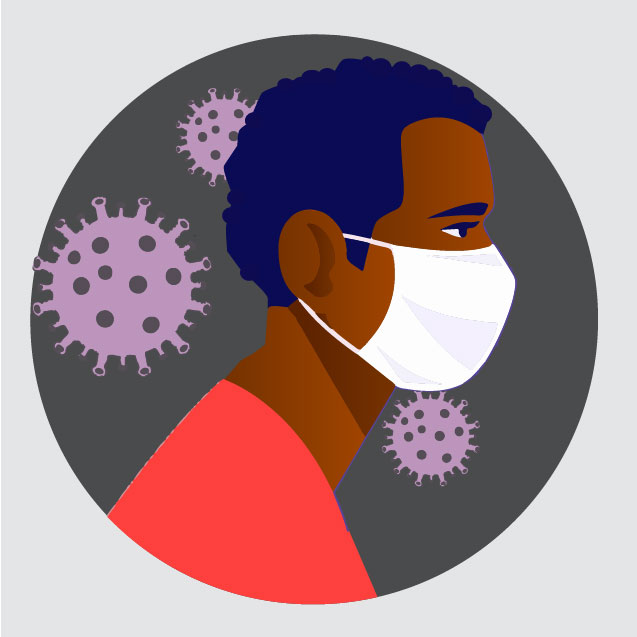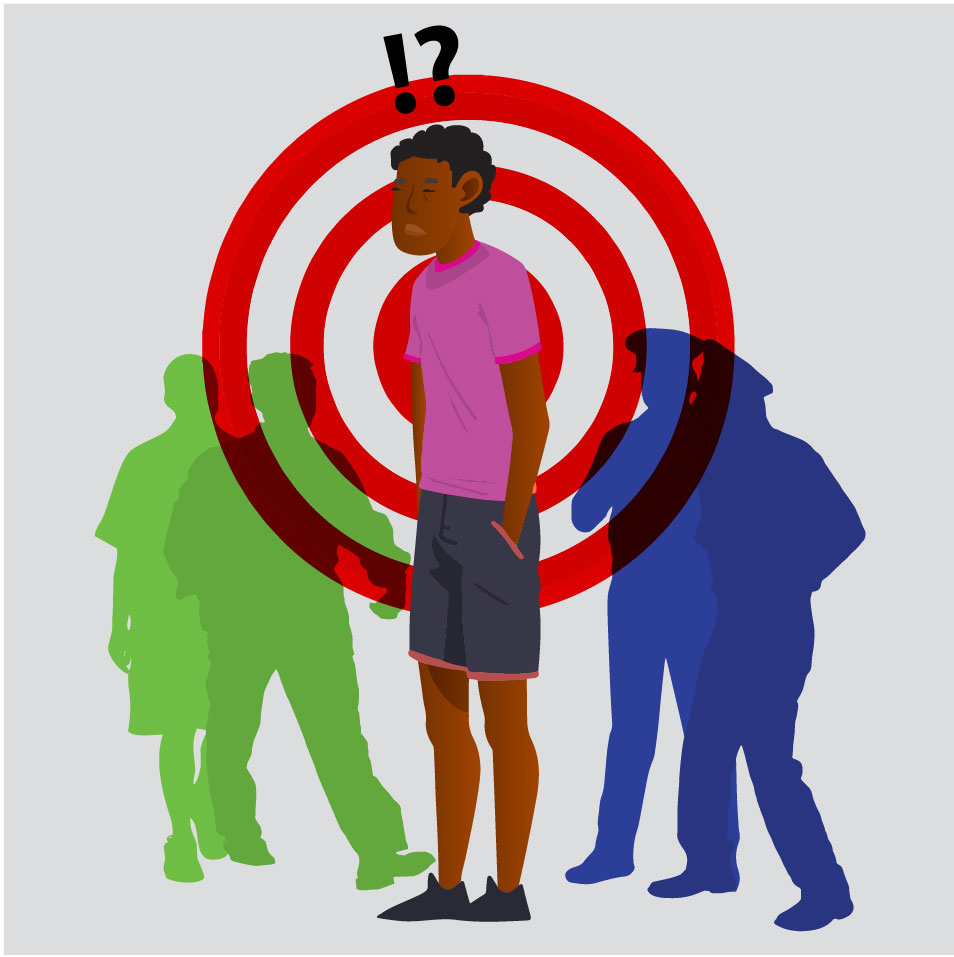Join us on March 21st for Talkin’ Books, BGMN’s new book club. Our panel will discuss The Prophets by Robert Jones Jr. We have 4 signed copies of the book available for 4 lucky attendees. Hosted by Neil Armstrong. Panelists will be Courtnay McFarlane, Dr. Christopher Smith, and Dr. Lance McCready.
JOY care edition
Join us for JOY- Care Edition
This holistic wellness workshop features guest panelists and Q&A. This fun and engaging session will have everything you need to JOY in taking care of your total self.
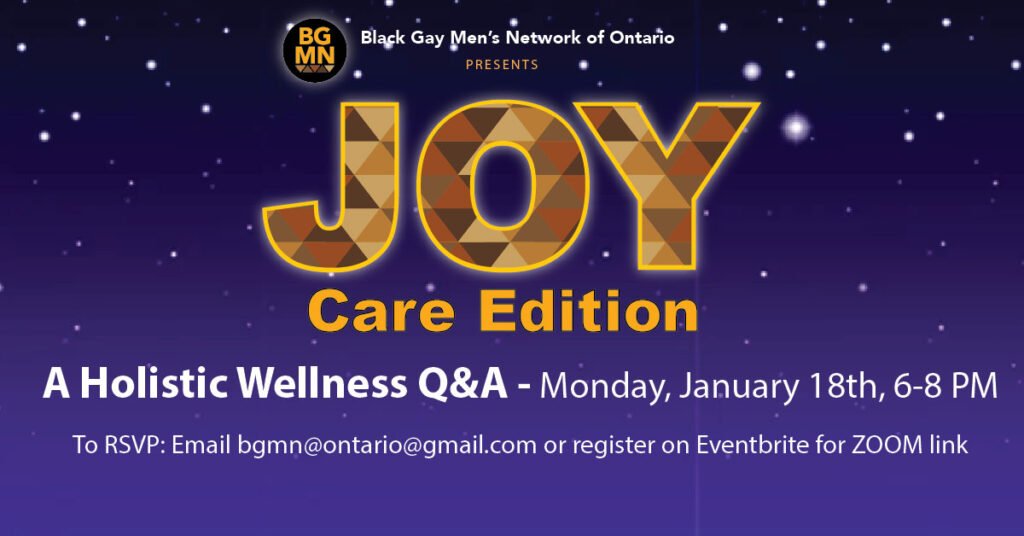
Make sure to register – https://bit.ly/3nj4Qa4
Joy Concert!
We closed out what’d been one heck of the year 2020 with some truly amazing live music.
JOY December 30 at 8pm
will be ushering us into the new season with sleek vocals and sultry melodies. Don’t miss out on the experience.Hosted by Jade Anderson. Mark the date.Also performing Tafari Anthony -R. Flex and Gary Beals Music.Live stream – BGMNOntario on Youtube & Facebook.
Click here to join our mailing list for a chance to receive $25 uber eats gift card
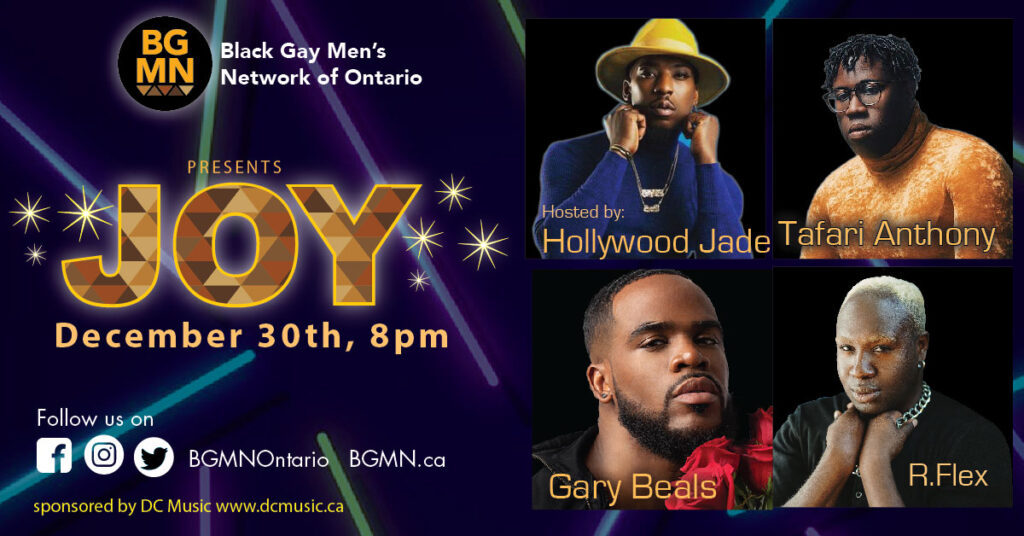
Get To Know Julian Mignott
Julian Mignott, who goes by the stage name Juelz, is a singer/songwriter and spoken word poet as well as the creator/producer of the LGBT concert series Pride x Soul. After moving to Toronto in 2012, Julian entered the world of the culinary arts working as a chef in many fine-dining restaurants across the city. While working as a chef, he simultaneously pursued his other passion in life, music and acting. Having studied with many great vocal coaches and acting teachers, he began performing in local bars, theatre productions such as Dreamgirls at the Lower Ossington Theatre and Fringe Hamilton, as well as TV productions.
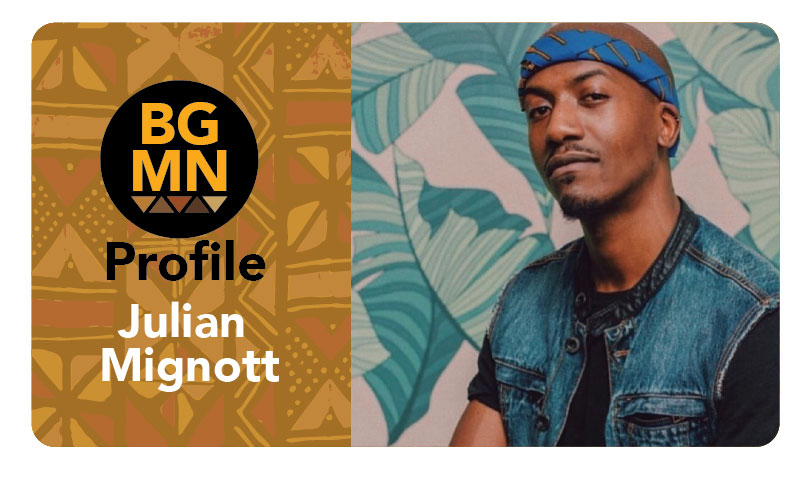
His latest project is the concert series entitled Pride x Soul. This event was created to give queer musicians of colour a platform to showcase their talents as well as provide a safe space where they can be their authentic selves. The idea came to him during his time at Centennial College where he attended a vocal performance program. It was there that he met other great vocalists, who were also a part of the LGBT community, who faced the challenge of wanting to share their art and be seen by an audience, but struggling to find events that would allow them to express their art through their unique perspective. Thus the Pride x Soul Toronto showcase was born.
How are you staying creative?
I have been doing a lot more writing since we’ve been on lockdown. All of this down time has allowed me to become more introspective and write a few pieces that are very personal and thought-provoking. I’ve also been exploring different artistic mediums such as sketching, music production, photography and videography.
Who are some of your influential authors or books to read?
In My Own Words – Dalai Lama
The Long Walk to Freedom: Runaway Slave Narratives – Devon W. Carbado and Donald Weise
Giovanni’s Room – James Baldwin
Going to Meet the Man – James Baldwin
The Courage to Be Disliked – Ichiro Kishimi and Fumitake Koga
What are you most proud of accomplishing?
My proudest accomplishment is seeing the Pride x Soul concert series come to fruition. For a long time I wanted to create a show where queer musicians of colour could be themselves and share their stories and talents to an audience of like- minded individuals.
Describe a scene of your vision for the future.
My vision for the future is to own a space where queer people of colour can congregate in a safe environment and live their truth without judgement. This will be a place where we can party, listen to live music, hold events, eat good food, etc. Representation matters and I feel as though an establishment celebrating the lives of queer people of colour is well-needed in our city.
Connect with
Meet Eric Peters
Eric Peters is a social and community activist with a passion for and a commitment to ensuring that the lives of all Black people — including Black gay, bi, trans and non-binary people – matter, and that they achieve and sustain a good quality of life. His lifelong mission is to resist all measures of anti-Blackness and to protect our human rights and dignity.
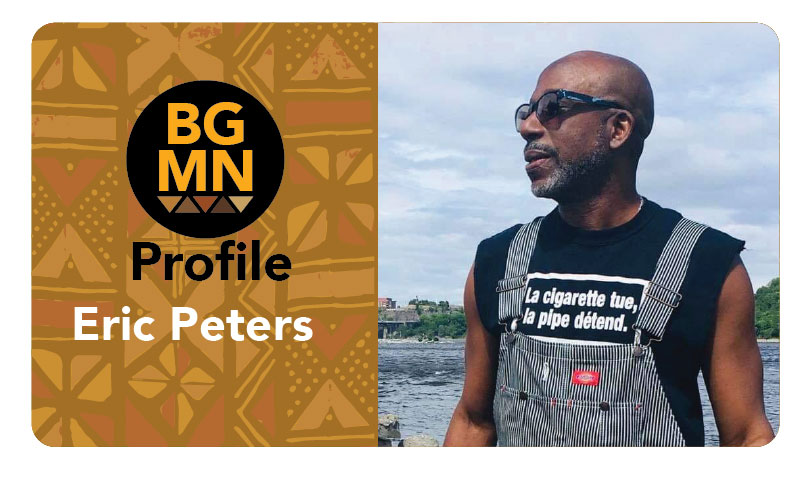
Presently, Eric works in health promotions concerning gay men’s sexual health using an anti-Black racism lens. His work is grounded in social justice and centres on building the capacity of service providers who work with two spirit, gay, bi, trans, queer (2SGBTQ) men to achieve and maintain their sexual health and emotional well-being. The goal is to help 2SGBTQ men develop and enjoy healthy, emotionally intimate, trusting and sexually pleasurable relationships. Eric is a lover of the arts and has a strong vocation for fashion; he launched his brand, Zavé, three years ago for custom and a clothing line (M/F).
How do you manage COVID-related stress/anxiety?
I am usually a person who pushes back against guidelines or enforced rules. However, early in the pandemic, I spiritually surrendered. My stress level was heightened by the videos shared on social media and other platforms for the world to see the modern-day lynching of two Black men, Ahmaud Arbery and George Floyd, which triggered a global fight against anti-Black racism.
It was at this point that I was wrapped in perpetual emotional turmoil, moving cyclically from anger, fear, and rage to sadness/grief. I am not sure that I’ll ever be the same emotionally, psychologically, mentally or spiritually. However, to address these emotions, I meditate daily, exercise on/off, FaceTime and video chat with family/friends, and attend some social distancing backyard picnics. Recently, I was re-introduced to hiking (not sure how long this will last), I’ve limited my use of social media and have been making optimum use of the block/delete buttons. I have also been reading articles/papers (work-related) on the many new antiretrovirals, on PrEP coming down the pike, and Nigerian and South African fashion blogs. I just completed Pauli Murray’s “Song in a Weary Throat” and Rinaldo Walcott’s and Idil Abdillahi’s “Black Life: Post-BLM and the Struggle for Freedom” (not to be read like a novel). This works best for me; of course, lots of quality time with my partner (dinners on our balcony and conversations).
Who is your favourite streaming DJ on FB or Instagram Live or what’s on your
playlist?
D-Nice, who I recently discovered in early quarantine, has become my favourite Instagram Live DJ. He plays the genres of music that I enjoy and love to dance. My playlist stems from my early days of clubbing in NYC in the 80s/90s. It comprises mixes of Paradise Garage, Frankie Knuckles house, Kenny Bobien’s gospel house, Byron Stingily’s (Hate Won’t Change Me), Black Coffee, Robert Owens’s (I’ll Be Your Friend), DJ Chill X (Old School House Mix), Viola Sykes (Little Girl), Kimara Lovelace (When Can Our Love Begin), Shaun Escoffrey (Days Like This), lots of Anita Baker, Whitney, Luther, Regina Belle, our home grown (Toronto’s own Coco Brown) and 80s Dance music – think Alexander O’Neal, Kashif and Phyllis Hyman. I’ll stop there.
What led you to your current (career, art, activism)?
The mid-90s heightened Black community HIV/AIDS response coincided with a renewed intensity about the ever-evolving Black experience in NYC, especially for Black and queer men with multiple identities and intersections. In my quest for a space where I could actualize my Blackness and queerness, l became a member of Gay Men of African Descent (GMAD), participated in People of Colour in Crisis (POCC) meetings/rallies and, delved into Black queer radical politics, community organizing and HIV/AIDS activism.
This experience motivated me to volunteer at an AIDS service organization (ASO) in Harlem, NYC around 1995. It was a time when young Black gay/bi men were dying from HIV/AIDS complications and wanted to learn more about HIV/AIDS. At the time, I had no plans of leaving my then position in Corporate America. However, in 1997, I enthusiastically took an outreach coordinator position at that ASO.
Today, 23 years later, not only have I gained knowledge and skills in almost every capacity of this work, but I also learned about community and myself. This brought me to the realization that one must be consciously ready (WOKE) for this career because this is “Wake Work.”
Describe a scene of your vision for the future.
In recent years, there have been ongoing conversations about older gay men’s fear of returning to the closet, due to the lack of “culturally gay appropriate” long-term care (LTC) facilities and spaces for this population. Therefore, my vision is that there’ll be LTC facilities that are held accountable and, committed to providing racially and culturally sound, diverse care to 2SGBTQ men (along the spectrum of sex, sexuality & gender identity). They will be facilities whose entire staff/board are not only “gay friendly,” but trained and have comprehensive knowledge of providing adequate and appropriate care centred in dignity and respect. They must have activities and policies embedded in gay culture that are not limited to, for example, books, music, films, rooms that partners can live together, lounges for socials — tea dances (Sundays, 4 – 8pm)/Saturday supper club soirees (dragshows/comedians/etc.). They will also create routine opportunities for residents’ engagement to discuss ways of enhancing their quality of life.
Connect with the Black Gay Men’s Network of Ontario and join the hub of same-gender-loving men of African, African diaspora, Afro-Latino, Caribbean and Black identities.
Our Newsletter for August 2020
Hepatitis C Awareness Day
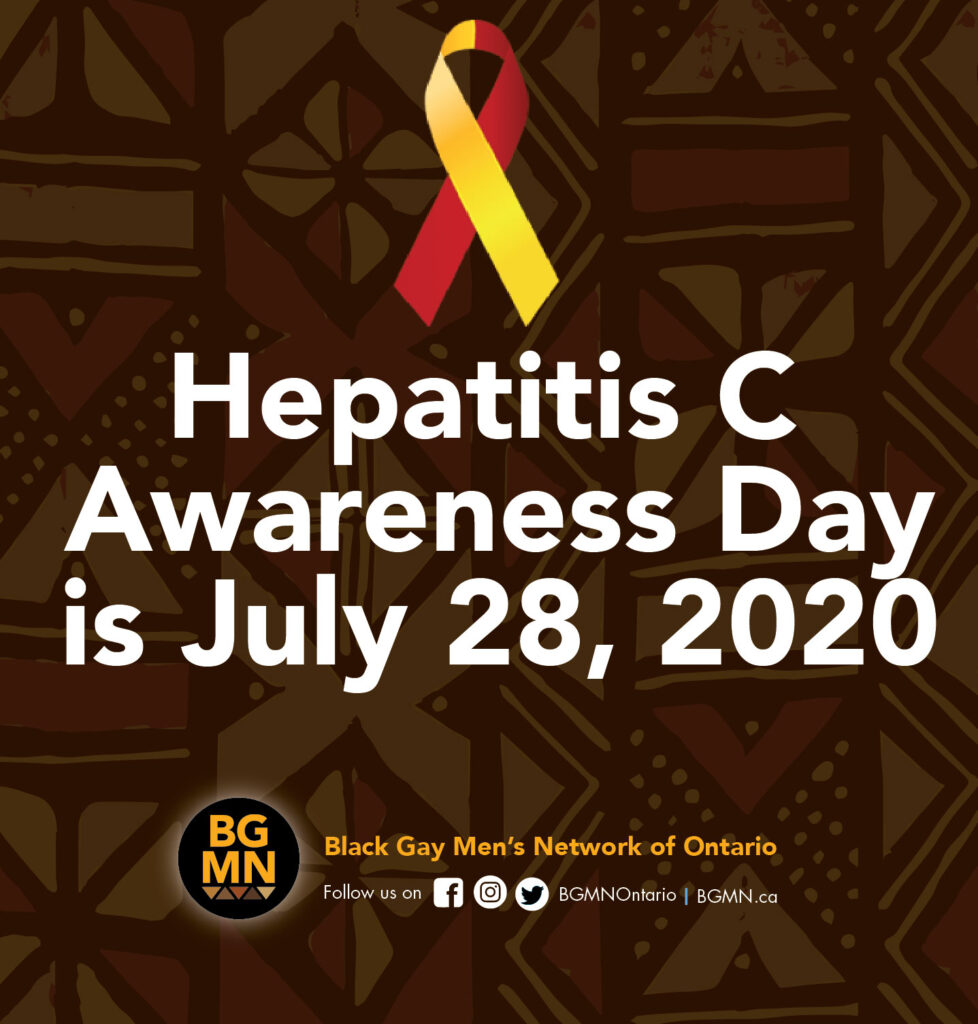
Almost half the people with Hepatitis C in Canada don’t know they have it – that includes Black Gay Men! Starting Treatment cures over 95% of people living with the disease. Talk to your nurse or doctor about getting tested for Hepatitis C – https://catie.ca/en/whd
Emancipation Day!
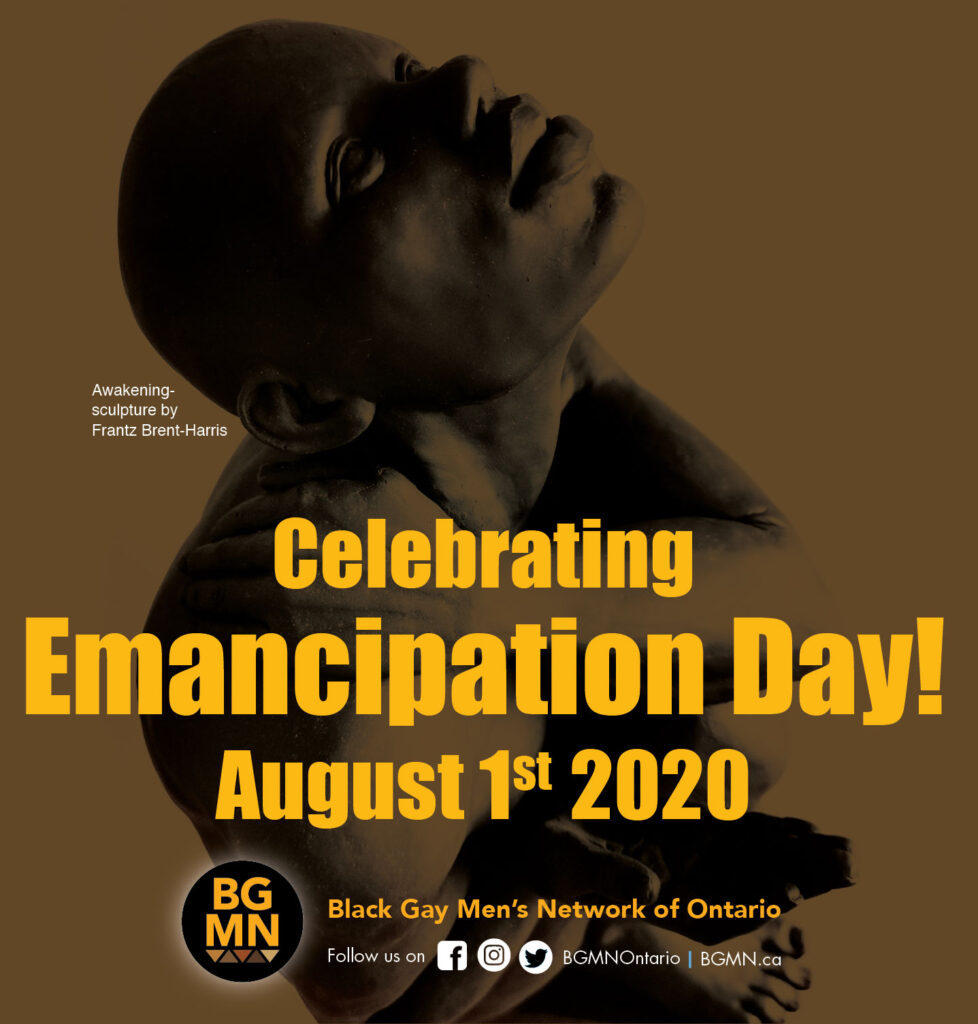
As a community of Black gay men, we honour the past and paths that have led to our freedoms. We take the present opportunities to reaffirm those liberties. We continue to fight for a brighter future!
New profile-William Koné
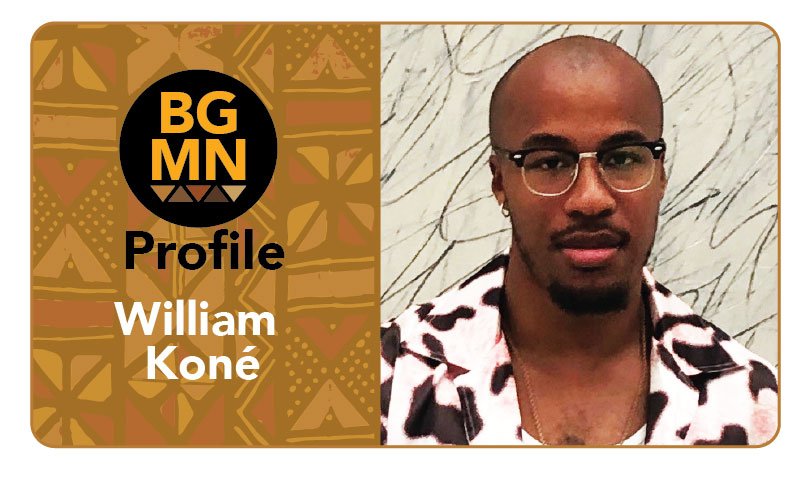
William Koné
William Koné is a MA graduate in psychotherapy. He completed his degree at Saint Paul University and his BA in psychology at Carleton University. His studies initially focused on autonomy’s impact on romantic success. Later, he highlighted relationship satisfaction among gay men. William intends to practice individual and couples therapy to specialize in identity and interpersonal conflict, preferably among the Black and/or LGBTQ+ population.
With MAX Ottawa, he co-facilitated discussions on anxiety and body image among guys into guys. Currently, he co-supervises its peer support program. As an Ottawa native, William is eager to support community projects that celebrate and heighten its Black queer presence in the city. This prompted him to co-found the Cap City Kiki Ballroom Alliance, serving as the sister chapter to the Toronto Kiki Ballroom Alliance.
How do you manage COVID related stress/anxiety?
Its been challenging having to process the amount of loss I endured this year. The alliance had just launched before the pandemic hit, so it hurt me knowing that our plans were shelved. My program underwent shifts so we could all graduate on time, but the journey to the end wasn’t satisfying given everything that was going on. Accompanied by the Anti-Black racism unfolding globally, it was a strain to get up and be productive for a while. I was even secluding myself from others because I was emotionally all over the place.
Long story short, I’m still figuring it out. Flagging depressive symptoms as they come up has helped by putting a name to what I’m experiencing. Loved ones have been holding me accountable for specific tasks, allowing me to focus my attention on what I’m interested in. Utilizing the resources that are available for me to vocalize my concerns was beneficial as well. I’ve always struggled to ask others for things, but the pandemic has made it apparent that many are grounded in the same pain. It’s validating to know that I can connect with others that hold genuine regard for me.
Who is your favourite streaming DJ on FB or Instagram live or what’s on your playlist?
With current music, the female rappers are giving it. City Girls, Megan Thee Stallion, and Saweetie are necessities. Their unapologetic demeanor accompanied by their dismissal of the male gaze forever reigns supreme to me. My playlists are based on the mood I’m in, so I use a single-word adjective to paint the story I’m creating. Right now, I’m curating one for my birth year 1993 to draw inspiration for writing. Essentials like Jodeci, Queen Latifah, A Tribe Called Quest, Tupac, and Mariah are obviously a part of the vision.
In general, I live for 90s Hip-Hop and R&B. The range and the style of that era remains unmatched, so I try to sprinkle favorites into playlists like Brandy, Janet, Nas, Gang Starr, Wu-Tang, and Foxy Brown.
How has your upbringing influenced you as an adult?
Being raised by a single mother was challenging because most expected her to fail. Raising Black boys as a young Black woman was considered detrimental towards our manhood. In the end, it was the biggest blessing I could’ve asked for. My mom taught me more about manhood by contradicting the stereotypes of what a provider looked like. Her teachings exposed me to the plights women endured, allowing me to embrace femininity as opposed to being threatened by it.
Her resiliency and her authenticity shape the way I operate today. She wasn’t hindered by other people’s perceptions because she prioritized what mattered to her, which were my siblings and I. There were countless times where I doubted my abilities because social and academic circles centered on white heteronormativity. She was the one to stress the importance of being myself. For that alone I’m grateful. I owe it to her to live my truth because she gave me the care I needed to survive this life.
Describe a scene of your vision for the future.
I want Ottawa to have options. For Black queer people to have the satisfaction in choosing different scenes/opportunities for personal fulfillment, whatever that may be. Many choose to sleep on what the city provides, but to me it’s a copout. With the number of driven yet inspiring faces I’ve encountered here, it’s inexcusable. There’s so much room for us to thrive and I want our presence to be known, point blank.
As for me, I’m conscientious of legacy. I’m eager to leave something behind that not only reflects my passions but extends beyond my intentions to better my community. I want a practice that houses Black professionals in various sectors of mental health, so people understand that support was built for them to turn to. That would be one of my biggest accomplishments.
